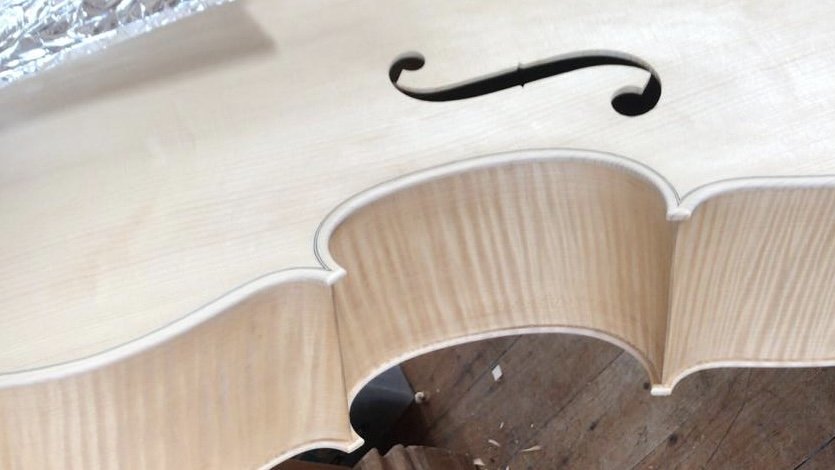
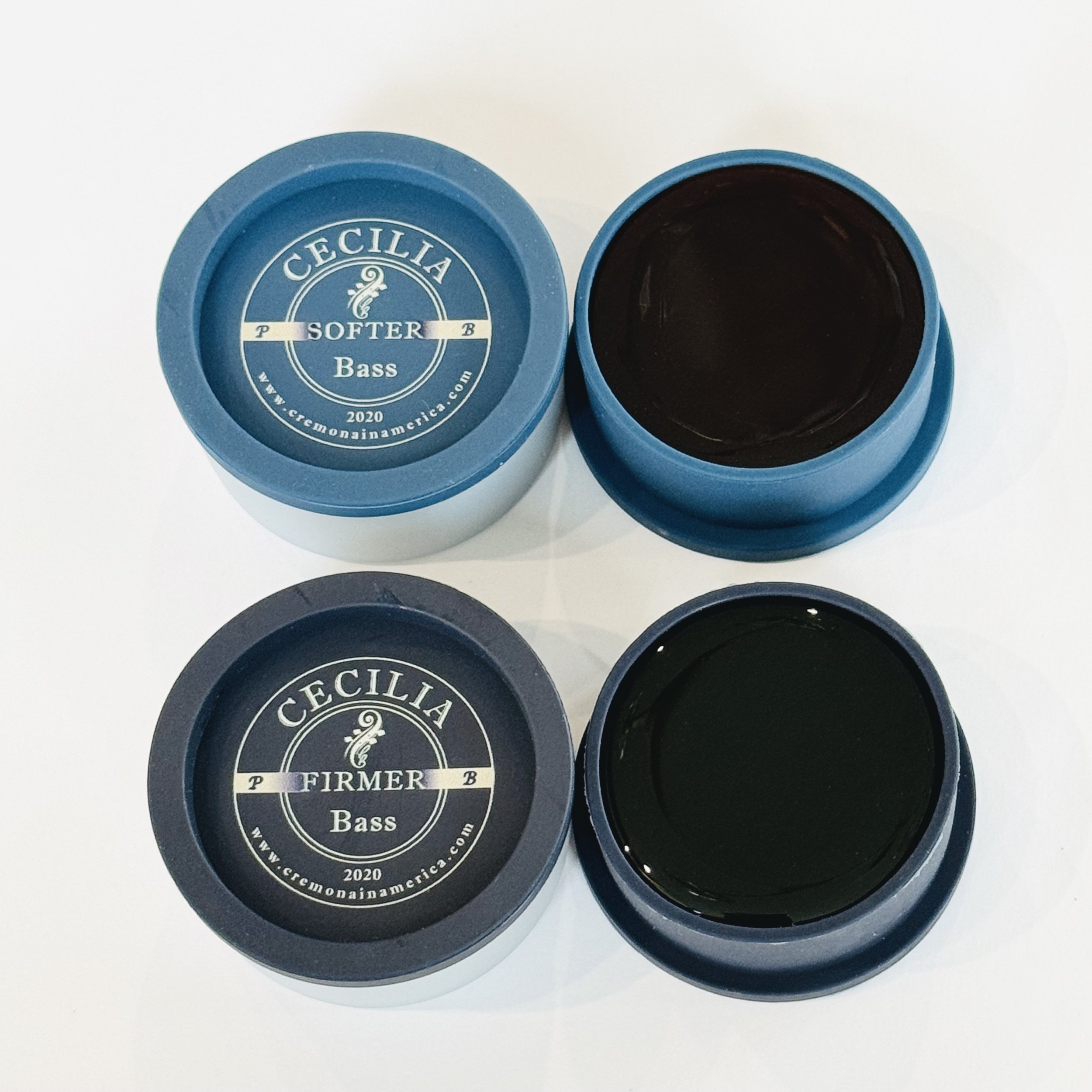

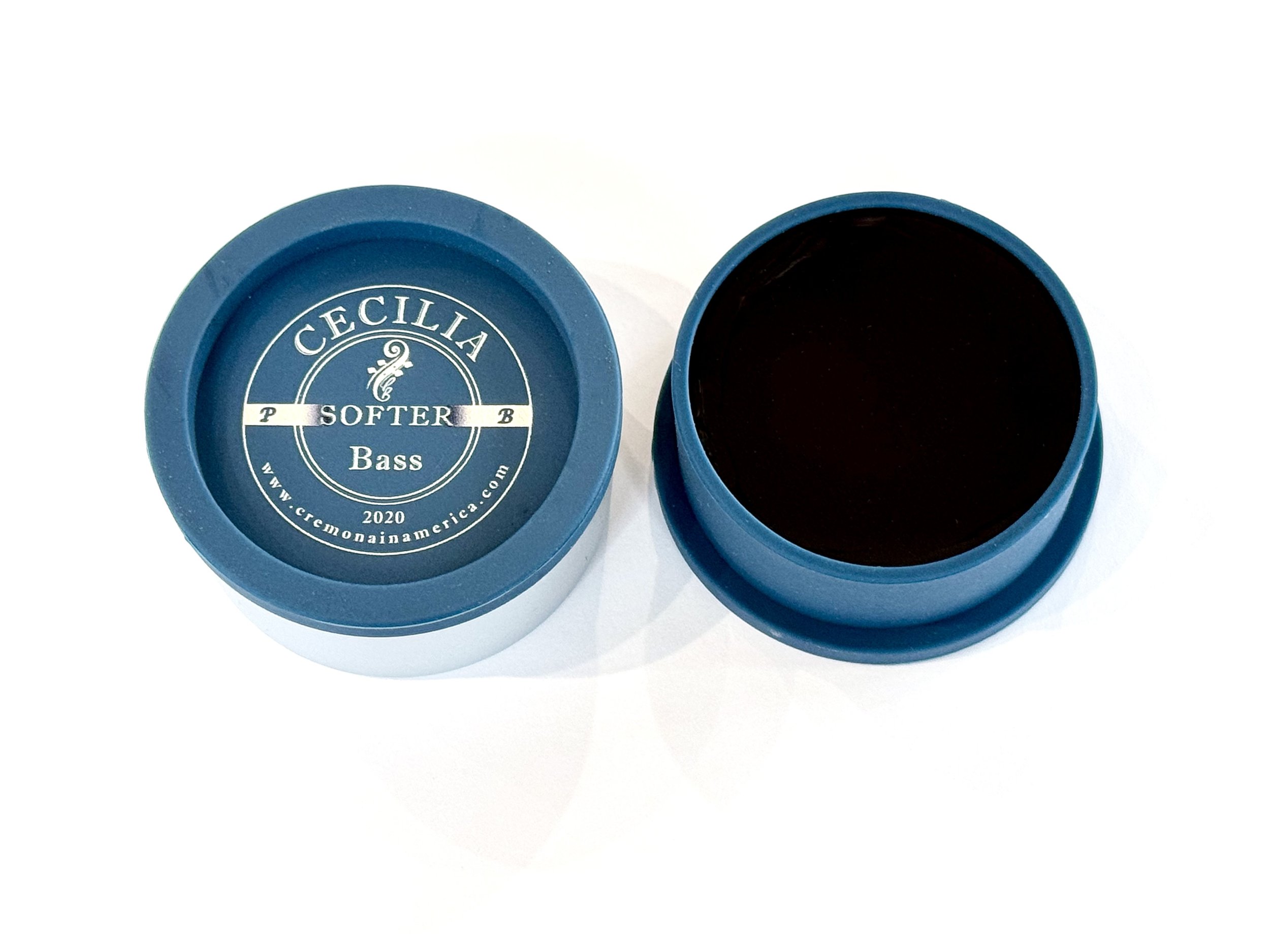

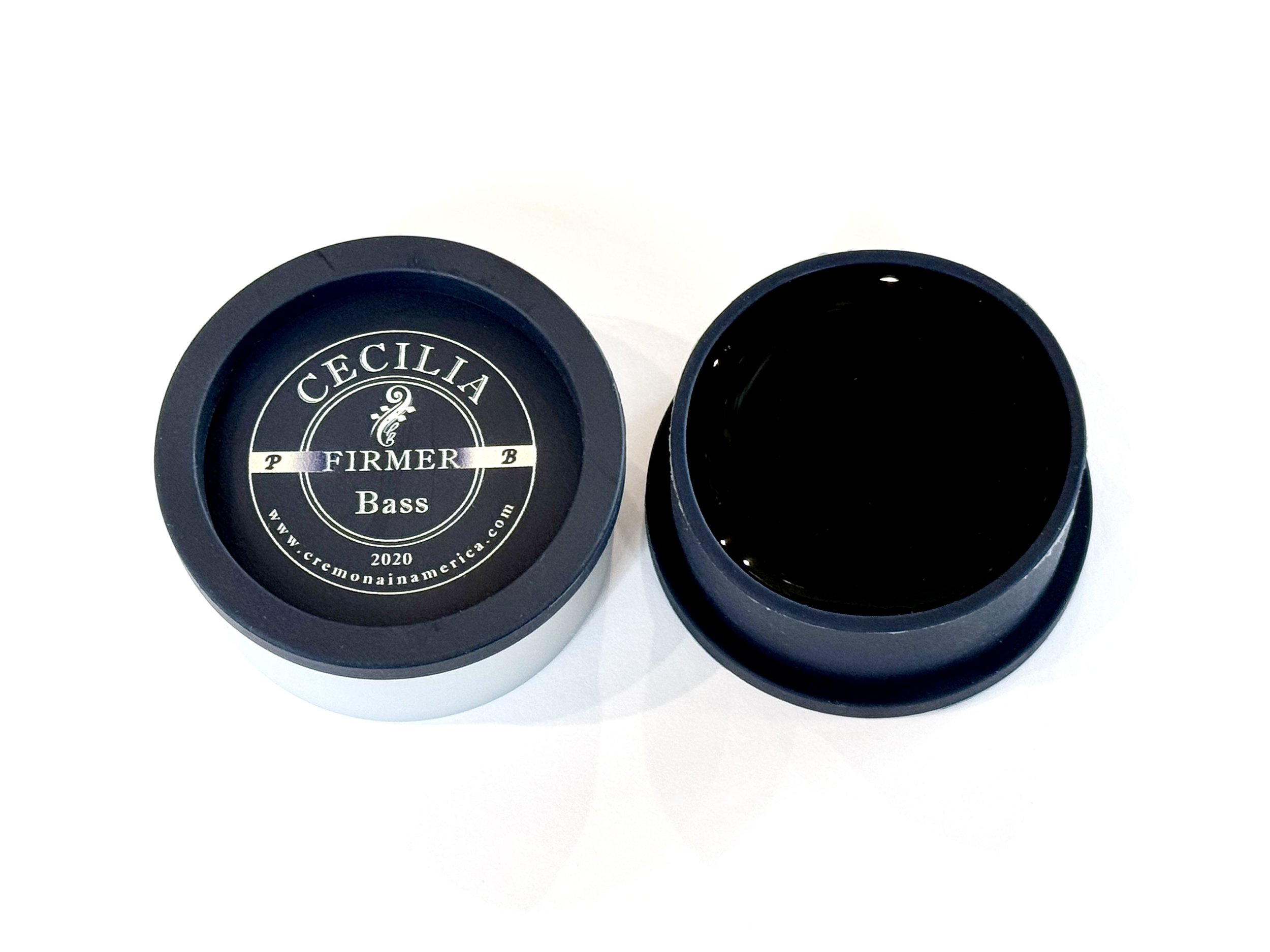
CECILIA Softer and Firmer Bass Rosin - released March 2024
CECILIA bass rosin is meticulously formulated to ensure a sustained and reliable grip, maintaining consistent traction over its lifespan when properly used and handled. What sets it apart from many other bass rosins is that CECILIA does not dry out. It’s traction properties remain uncompromised by fluctuations in temperature.
CECILIA Rosin "Signature Formula" - video demonstration by the rosin maker
The rosin is available in two formulas:
SOFTER for relatively low temperature conditions (11c or lower) or for those seeking extra grip with a fuller tone and more power. A malleable formula that is soft. Supplied in a silicone case.
FIRMER for higher temperatures (17C or greater) or for those aiming for a crisp clear tone and a quick response. A harder rosin.
Each bass rosin also has the CECILIA rosin spreader attached. Supplied in a silicone case.
UPC/EAN Code
Bass Firmer: 850597002679
Bass Softer: 850597002662
"True Artist" by Cecilia Rosin Collection
Product Identifier: Rosin; Colophany, CAS No. 8050-09-7
The following information applies to all makes of violin, viola, cello and bass rosins that contain rosin made from tree sap:
Safety Notes H statements
h317: May cause an allergic skin reaction.
Safety Notes P statements
p261: Avoid breathing dust/fume/gas/mist/vapours/spray.
p280: Wear protective gloves/protective clothing/eye protection/face protection.
p302-p350: IF ON SKIN: Wash with plenty of water/…
p333-p313: If skin irritation or rash occurs: Get medical advice/attention.
p362+P364: Take off contaminated clothing / Wash contaminated clothing before reuse.
p501: Dispose of contents/container to an authorised waste collection point
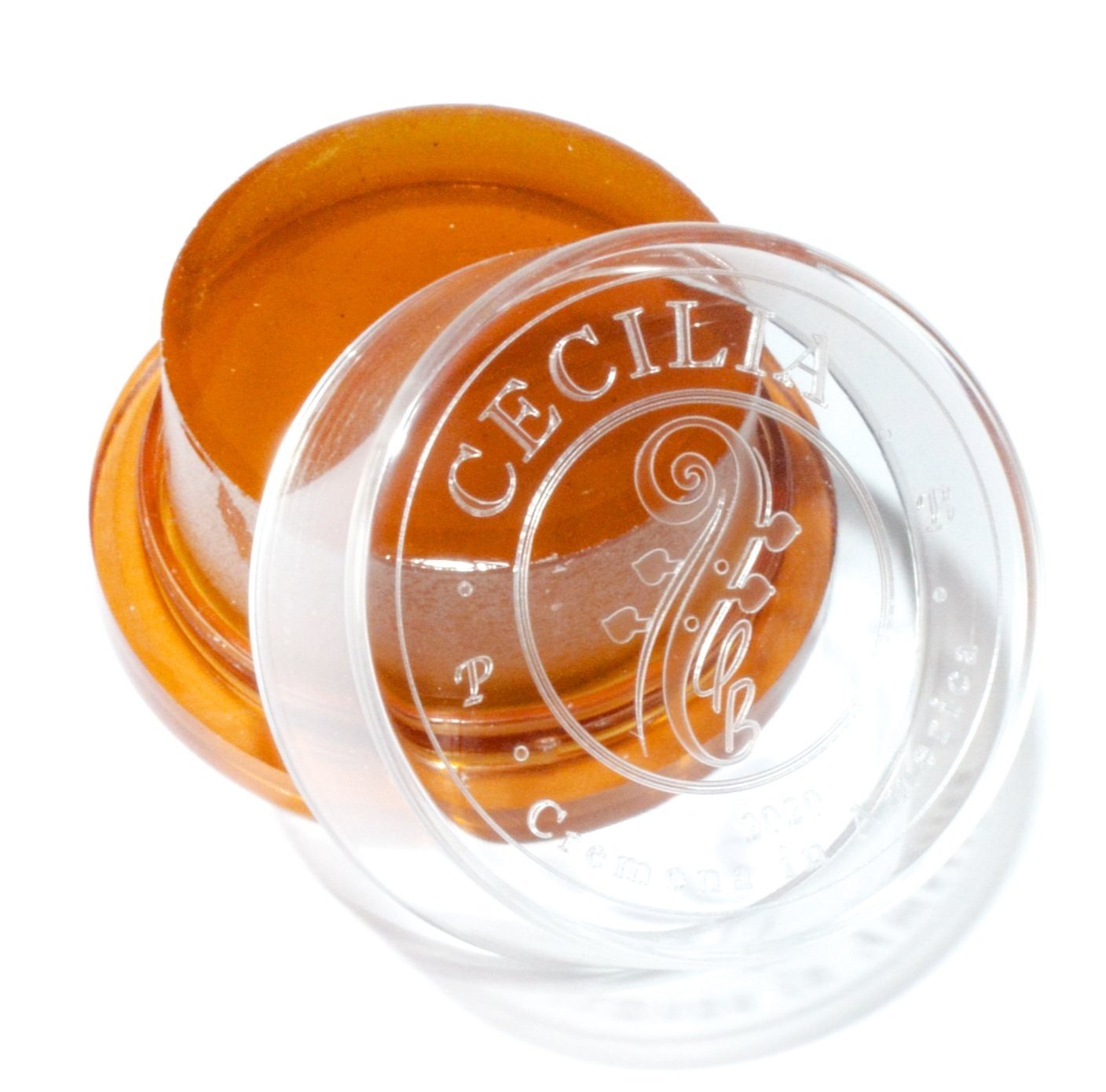
The history of Cecilia Rosin, from inception to the present day.
The idea
The spark that ignited the current line of Cecilia rosins happened in 1998. At that time a young Peter Bahng, creator of Cecilia rosins, was practising his violin in his father's workshop.
Peter's father Andrea was dedicated to researching and testing new types of varnish for string instruments. He used various ingredients, many of which came from different types of sap.
While Peter practised his violin, he liked to experiment with different types of rosin to help him play more easily. He knew that varnish and rosins had ingredients in common, so his youthful curiosity prompted him to continue researching and experimenting further, testing a wide variety of ingredients and formulas.
Making the rosins available
Peter started experimenting with small amounts of different rosins until he came across a compound that not only made his performances easier, it also enhanced his sound. Quickly, Peter, excited, explained about his discovery to his father Andrea and his mother Cecilia, and together they had a talk where they explored the possibilities of commercialising the product.
Shortly after, Peter had to return to the United States to resume his studies at the Cleveland Institute of Music, but during this time, his parents sought the support and partners necessary to launch the original Tartini resin in 2001. A legend had just been born.
What happened next
Some time after the original Tartini rosin was released, it went through a series of unfortunate changes of associates and business conflicts. These resulted in the name change from Tartini to Andrea. Product quality was also affected by these events; during this time, the Andrea rosin was being manufactured by two different companies, with different formulations.
From this point on, the rosin began to lose part of its fan base and popularity with musicians and distributors due to inconsistencies in quality and availability. In 2007, the production of Andrea rosins ceased permanently ... and for some time.
The rebirth
Let's take a quick look at the present: Peter still has accurate memories of the touch and sound of the original formulas he made himself. His mother Cecilia, who was always the point of union for the family, kept the original formulas and processes safe and secure throughout the years.
In 2009, while Peter was working as a professional violinist in New York, he founded the company Cremona in America to bring back, with the help of his mother Cecilia, the Andrea rosin with the original formula, made without compromise for the professional musician.
Peter regained the enthusiasm and curiosity of his youth that had led him to make the original rosin and created, additionally, new formulas that would complete the range of Andrea rosins. Up until 2020, when the name changed from Andrea to Cecilia, Peter had produced more than 200,000 individual Andrea rosins.
From ANDREA to CECILIA and Why
Sadly, Peter's mother Cecilia passed away unexpectedly in 2019. Peter decided to change the name of his rosins to Cecilia in honour of his mother. He continued with his commitment to develop his rosins, recognised worldwide for their high quality, while honouring the memory of his beloved mother. Incidentally, Cecilia is also the patron saint of musicians, so it seemed the right name for an essential item for professional string players.
From 2020 and into the Future
From the beginning of 2020, Peter only produced rosins under the Cecilia brand. The new Cecilia rosin collection offers the original and popular Solo rosin together with the A Piacere and Sanctus models. A new addition to the professional line-up called Signature Formula has been developed as the flagship of the Cecilia rosin collection. As with his other rosins, this new rosin has received acceptance and accolades from professional musicians around the world.
Sanctus, A Piacere, Solo, and Orchestra rosins have all been made under the ANDREA brand name. From spring 2020, Cremona in America began replacing the name ANDREA with CECILIA.
There is no change in the rosin formulas whatsoever.
